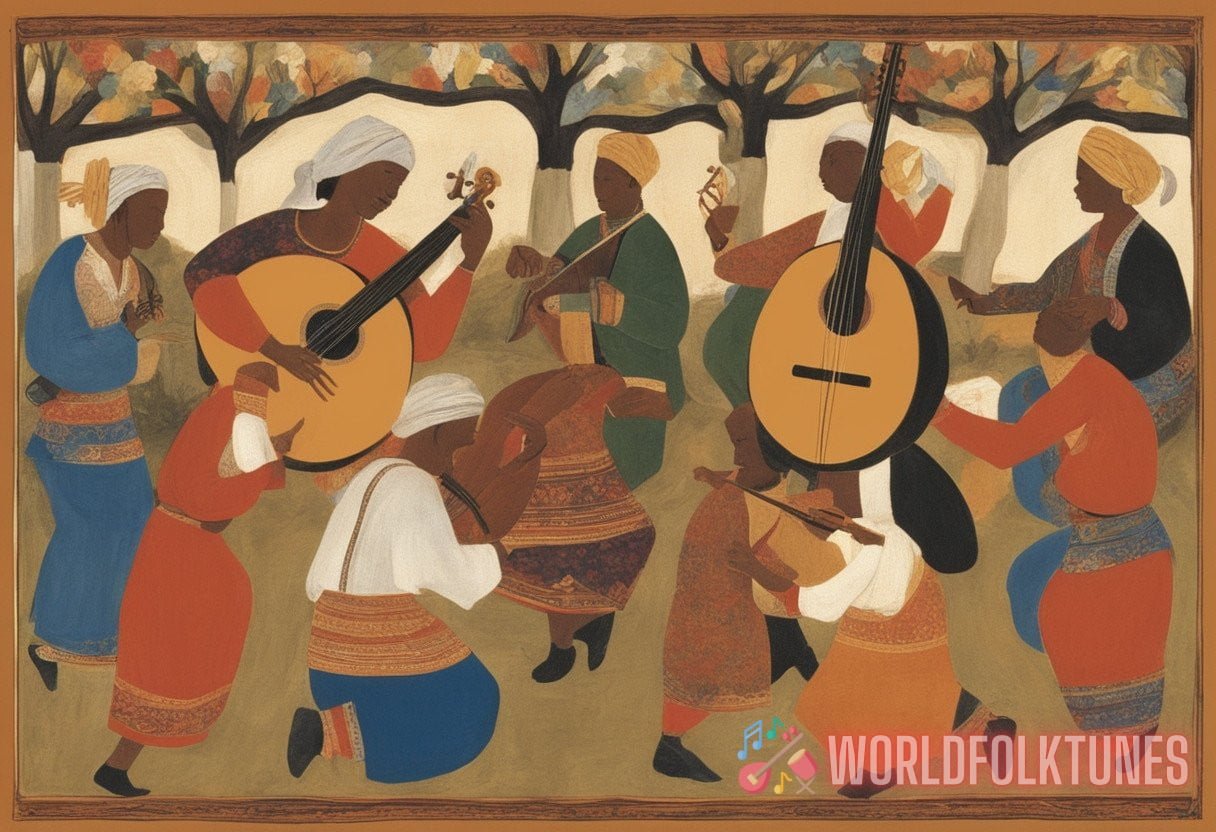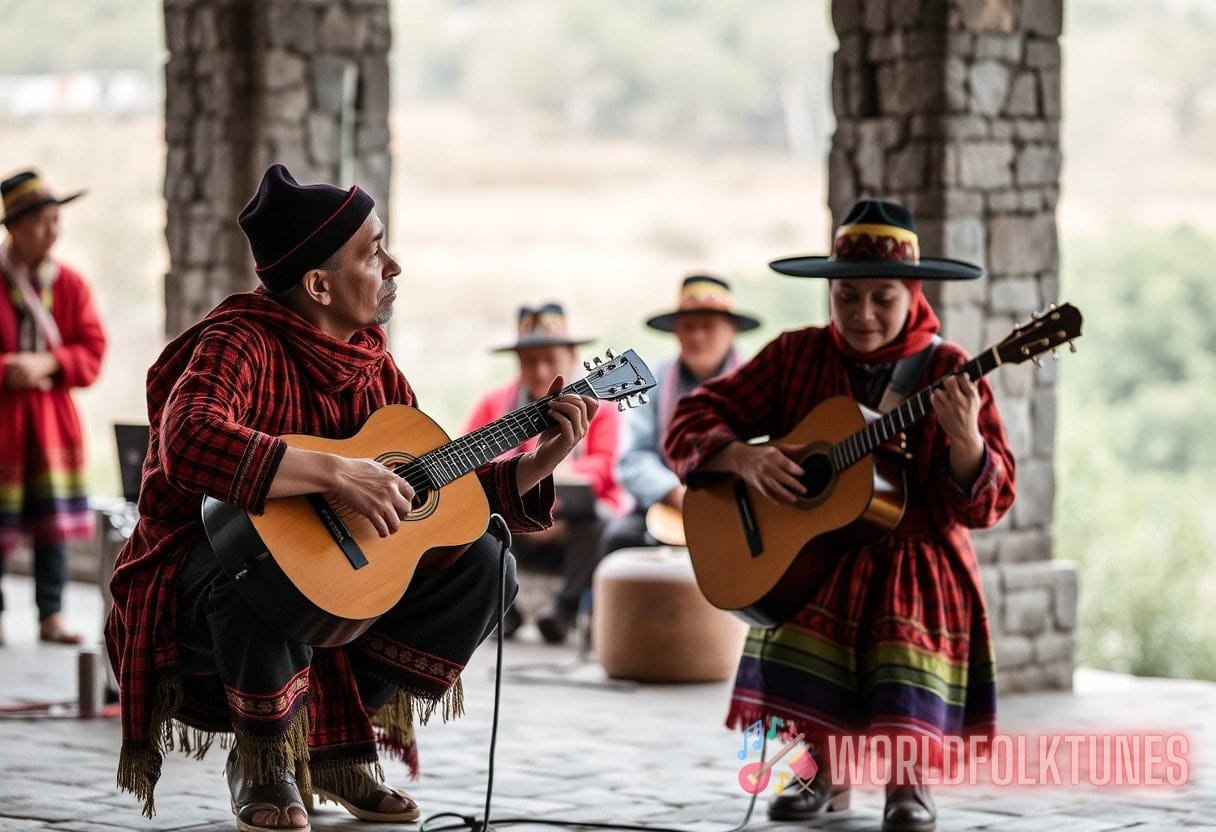Cultural Chronicles in Melody: Folk Music’s Role in Preserving Collective Memory
The profound role of folk music in preserving collective memory cannot be overstated. Across the globe, folk tunes act as time capsules, safeguarding the narratives, traditions, and emotional experiences of various cultures.
1. Understanding Folk Music
Folk music, often characterized by its oral transmission, simple melodies, and cultural ties, is a universally recognized genre. Its roots can be traced back to the traditions of rural communities, where songs were passed down through generations without written notation. This unique quality of folk music makes it an invaluable repository of collective memory.
The Historical Significance of Folk Music
2. The Origins and Evolution
The origins of folk music are as varied as the cultures it represents. Historically, these songs were an integral part of social and cultural activities, from communal gatherings to seasonal celebrations. Over time, the evolution of folk music has been influenced by various factors, including migration, trade, and social changes.
For more insights into the influence of folk music, visit this article.
3. Folk Music as a Historical Record
In many cultures, folk music served as an unofficial historical record, documenting events, societal norms, and collective emotions. For instance, ballads often recounted local legends and historical battles, providing a narrative that was both entertaining and educational.
Folk Music and Cultural Identity
4. Expressions of Cultural Identity
Folk music is a powerful tool for expressing cultural identity. It encapsulates the values, beliefs, and experiences unique to a community. Whether through the lyrics, instruments, or performance styles, folk songs convey a deep sense of belonging and continuity.
5. Preservation of Language and Dialects
One of the significant roles of folk music is the preservation of languages and dialects. Many folk songs are performed in local languages, reflecting the linguistic diversity of a region. This aspect of folk music is crucial in maintaining linguistic heritage, especially in the context of globalization where minority languages are at risk of disappearing.
Folk Music in Modern Times
6. Revival and Adaptation
In contemporary times, there has been a revival of interest in folk music. Modern artists often adapt traditional folk songs, blending them with contemporary styles to reach a broader audience. This fusion not only revitalizes the genre but also ensures its relevance in a rapidly changing world.

Explore the roots of folk music through this comprehensive article.
7. Folk Music in Social Movements
Folk music has historically been a medium for social and political expression. From the Civil Rights Movement in the United States to anti-apartheid campaigns in South Africa, folk songs have galvanized communities and spurred collective action. The simplicity and emotional depth of folk melodies make them particularly effective in conveying powerful messages.
Global Perspectives on Folk Music
8. African Folk Music
African folk music is characterized by its rich rhythms, call-and-response patterns, and traditional instruments such as drums and mbira. These elements create a communal experience, reflecting the social structures and communal values of African societies. African folk songs often deal with themes of everyday life, work, and spirituality.
9. Asian Folk Music
In Asia, folk music varies widely across regions. For instance, Indian folk music is deeply intertwined with religious ceremonies, festivals, and rural life. Instruments like the sitar, tabla, and dholak are commonly used. Meanwhile, Chinese folk music incorporates instruments such as the erhu and pipa, and it often reflects the philosophical and poetic tradition of the culture.
The Future of Folk Music
10. Challenges and Opportunities
Despite its enduring appeal, folk music faces numerous challenges in the modern world. The rise of digital media and the homogenization of popular culture threaten the survival of traditional folk forms. However, there are also significant opportunities for preservation and innovation. Advances in recording technology and the internet provide platforms for sharing and reviving folk music globally.
11. The Role of Educational Institutions
Educational institutions play a crucial role in preserving folk music. Schools, universities, and cultural organizations can foster appreciation and understanding of folk traditions through dedicated programs, research, and performances. Integrating folk music into the curriculum can also help preserve linguistic and cultural diversity.
12. Community Efforts and Grassroots Initiatives
Grassroots initiatives are essential in preserving folk music at the community level. Local festivals, folk music clubs, and cultural exchanges encourage active participation and intergenerational transmission of folk traditions. Community engagement is vital for keeping folk music vibrant and relevant.
Conclusion
Folk music’s role in preserving collective memory is profound and multifaceted. It serves as a vessel of cultural identity, a preserver of languages, and a catalyst for social change. As we look to the future, it is essential to continue supporting and revitalizing folk traditions to ensure their enduring presence in our collective cultural heritage.


